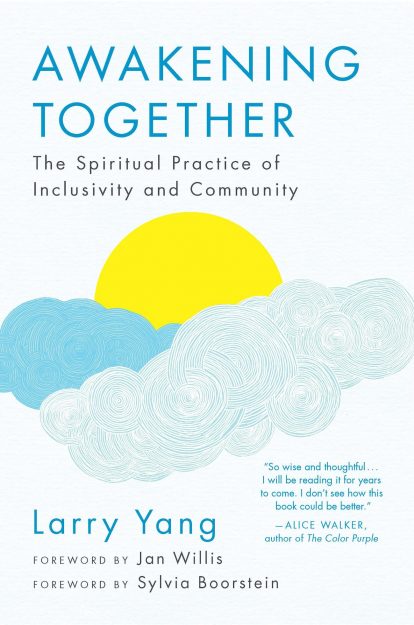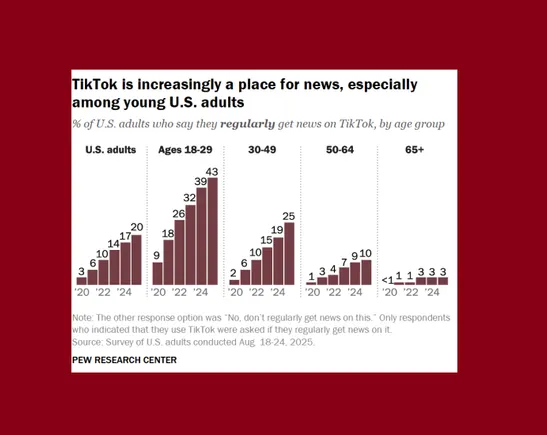The Bare Experience of Craving
A teaching on letting go of our perceived objects of desire and the freedom that comes with attuned awareness. The post The Bare Experience of Craving appeared first on Tricycle: The Buddhist Review.

A teaching on letting go of our perceived objects of desire and the freedom that comes with attuned awareness.
By Larry Yang Oct 14, 2024 Photo by ZW
Photo by ZWGenerally, the conditioning of our world and our behavior is patterned toward sating our cravings. We have a misguided assumption that receiving the object of our desire will ultimately satisfy us, create contentment, allow us to be happy. Our larger culture is constantly training us that “more is better.” We have become seduced by the ambient marketing arising that more of everything is better. We see this on a daily basis in our lives—just about every product that is sold to us is about guaranteeing our happiness. Our market economy even tries to convince us that “desire” and “craving” are worthwhile states of being. Echoing a pop song, one advertising slogan read, “I want you to want me.” I saw another during the Christmas shopping season on the streets of San Francisco in a retail storefront with a banner that announced, “Moderation kills the spirit.” Or we are told, “Obey your thirst.”
Not only does our society’s collective unconsciousness feed our desires, it promotes them to an extreme—even pathologizing moderation and balance!
What these almost universal advertising messages hide from us is a key awareness that could pierce this prevailing confusion. This awareness is that there are consequences to trying to satiate unrestricted craving and unencumbered desire. The primary consequence is that craving and the attachment that comes from craving can never be satiated by any object.
No object can truly satisfy craving because the goal of craving is not to crave. All craving is the craving for no craving. The real goal of craving is unmitigated attainment of permanent satisfaction. In the search for satisfaction, all craving seeks its own destruction. But sating craving never creates lasting satisfaction; it is always fleeting and temporary. Why? Because the energy of craving and attachment have neither wisdom nor insight. Craving does not have the ability to see truth. Craving does not have the ability to know that the cause of suffering is craving itself. Only our mindfulness can cultivate the clarity and insight into the truths that lead to freedom from craving.
In a Mahayana sutra of Chinese origin, the Buddha gave this teaching in a discourse called, as translated by J. C. Cleary, “Instructions for the Rich”:
You monks who want to escape from all the various afflictions must contemplate [what it means to] know satisfaction. The method of knowing satisfaction is the locus of prosperity, of bliss, of peace and security. Even if they are lying on the ground, the people who know satisfaction are happy and at peace. For the people who do not know satisfaction, it does not suit their fancy even if they are in heaven. The people who do not know satisfaction are poor even if they are rich. The people who do know satisfaction are rich even if they are poor.
Being content with what we have leads to happiness—whether that is materially, psychologically, or spiritually. It is an awareness practice. Are we content with the moment as it is or are we craving for something different?
If you have ever been involved with compulsions or addictions to any kind of activity, food, relationship, chemical substance, or any of our surrounding technological devices, or if you have been involved closely with people caught in cycles of wanting and craving, you know that it is the “high” that the person in addiction searches for and seeks to sustain. The plateau of the high is regarded as the moment of satisfaction—and unfortunately for all of us searching for that high, there is the inevitable, subsequent crash. This dynamic plays out for everyone; it is just more discernible within addiction. We might easily feel that a certain kind of job, or certain house or social status, or even a certain person will fulfill our happiness. But each of those experiences and objects have the ten thousand joys and ten thousand sorrows embedded within them. And there will always be the disappointment and crash that, if we remain unconscious, will drive us to seek yet another object to satisfy our continually arising craving for happiness.
Craving and the attachment that comes from craving can never be satiated by any object.
The alternative is this: as we realize that no external object will create freedom from craving, we let go of and drop any object of craving in order to be with the bare experience of craving itself. We are invited to notice and become intimate with the sensations arising and passing away, of the attachment and desire without any connection to any object or focus. As we navigate sensations and emotions, we actually traverse through the experience of craving as opposed to fruitlessly trying to circumvent craving through an object that we imagine will provide happiness.
True freedom is not about getting an object to satisfy the craving. True freedom is in exploring the craving itself, and seeing and feeling what is on the other side of that craving. One of the powerful aspects of awareness arises from the fact that the awareness of an experience is not the experience itself. The experience of being aware of craving and all of its sensations, pleasant and unpleasant, is the experience of not being lost in the experience of craving.
***
For Reflection:
When craving for the moment to be different than it arises, explore the possibility of letting go of the object of craving and directly feel the craving itself.
What are the physical sensations of craving on a moment-to-moment basis?
In the face of injustice, oppression, or even injury, what supports deepening your awareness around the experience as you try to remedy the conditions of suffering?
♦
 From Awakening Together: The Spiritual Practice of Inclusivity and Community by Larry Yang © 2017. Wisdom Publications, Somerville, MA.
From Awakening Together: The Spiritual Practice of Inclusivity and Community by Larry Yang © 2017. Wisdom Publications, Somerville, MA.
![]()
Thank you for subscribing to Tricycle! As a nonprofit, we depend on readers like you to keep Buddhist teachings and practices widely available.
This article is only for Subscribers!
Subscribe now to read this article and get immediate access to everything else.
Already a subscriber? Log in.

 ValVades
ValVades 































